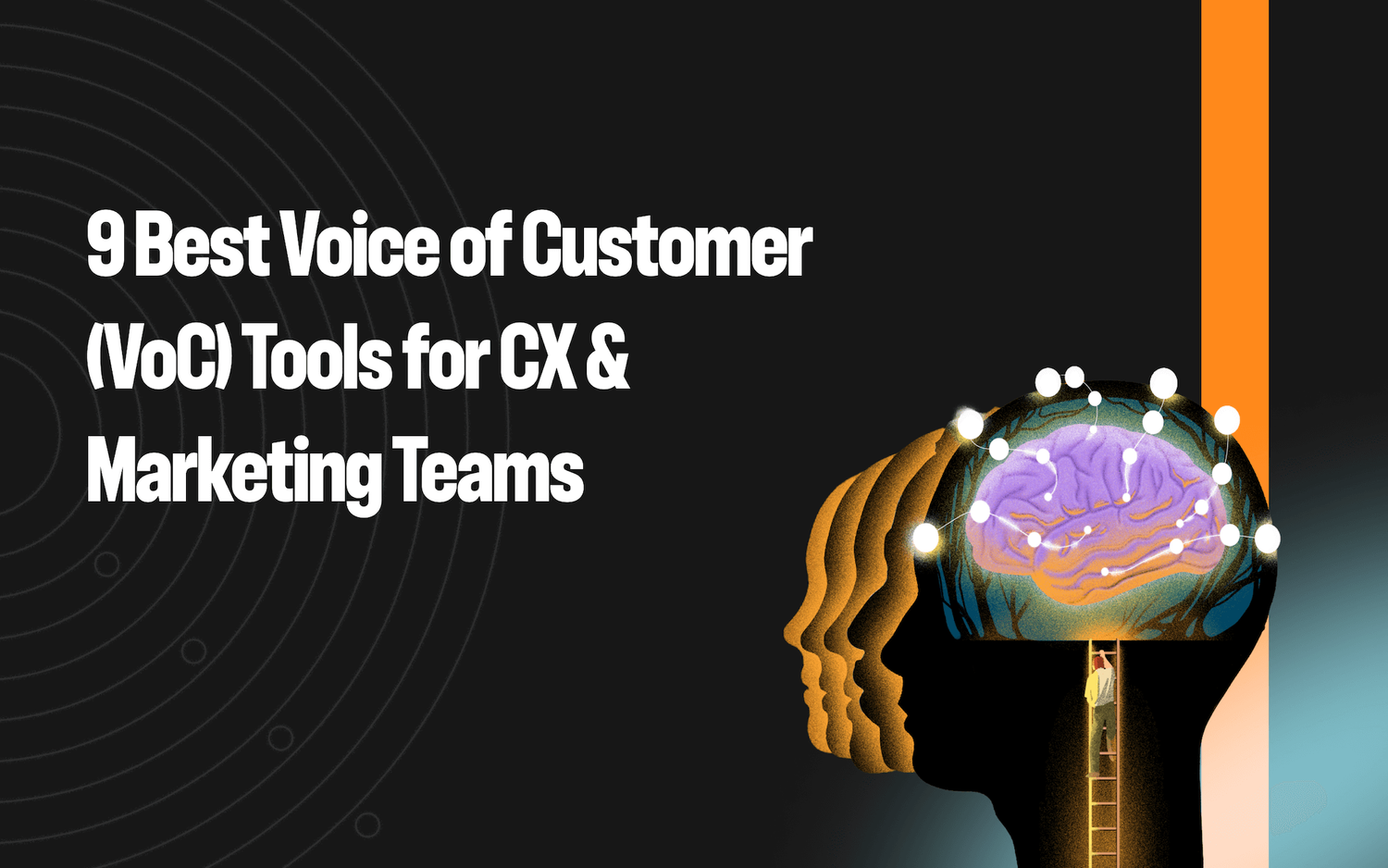5 Traits in Call Center Quality Assurance Managers that Drive Great Customer Service


5 Traits of a Great Contact Center Quality Manager: What It Takes To Create Exceptional Customer Service
Microsoft’s global report on customer service revealed that over 90% of consumers assert that customer service is among the most crucial factors for determining brand choice and customer loyalty. If extraordinary customer service is the goal, then outstanding quality assurance is the bridge to that goal.
As a hiring manager, you can probably relate to the hassle of filtering never-ending lists of applicants and trying to select the perfect fit from a talent pool.
Because the role of a Call Center Quality Assurance Manager is critical, finding a suitable candidate with the right skills & traits can be pretty daunting. We want to help you with that! And that’s why we have compiled a well-researched list of 5 surefire traits to help you identify the best quality manager for your contact center.
We also added a bonus at the end on the role of AI in contact center quality assurance, so stick around to the end.
The Importance of Quality Assurance Analysts in Your Call Center.
Call Center Quality Assurance Managers are the backbone of performance management in contact centers. They continually monitor and evaluate the quality of conversations between customers and agents, providing constructive feedback, training, coaching, and designing effective rubrics for top-notch customer service.
Most contact centers have teams with specific responsibilities, and it is the job of the Call Center Quality Assurance Manager to monitor every team and support the operators to meet KPIs targets.
Quality Auditors are essential to management because they oversee each agent’s work to increase productivity. They are crucial because they:
- Ensure that agents adhere to company quality standards and attain goals that boost overall performance.
- Identify issues that agents may overlook and offer potential solutions.
- Motivate agents to exceed their comfort zones to accomplish predetermined goals.
- Resolve agents’ challenges and coach agents or implement systems to prevent a recurrence.
- Design and implement onboarding and training programs to equip agents to deal with common workplace issues.
5 Traits of an Effective Contact Center Quality Assurance Manager.
According to hiring managers, here are five essential traits to look for in Call Center Quality Assurance Manager. A Call Quality Analyst with these traits will positively impact your call center’s quality assurance processes and improve agents’ performance, and customer experience:
1. Goal-Oriented KPI Monitoring
The chief goal of contact centers revolves around maintaining excellent customer experience, minimizing agent turnover, and maximizing profitability.
Good call center quality assurance managers keep one eye on the contact center goals and another on the metrics to benchmark the progress against those goals. They consistently monitor employee performance to track progress by conducting tests and assessments to identify areas where coaching is needed.
For example, inbound call centers attending to an overwhelming number of calls daily may focus on average handling time (AHT) or Average Time in Queue.
These metrics affect the speed of service delivery and can be why some customers leave dissatisfied.
The best call centers aim for a well-balanced framework that considers both speed and quality of service delivery.
As such, Call Center Quality Assurance Managers will keep an eye out for metrics such as customer satisfaction score (CSAT). They will listen to recordings of customer-agent conversations to see how agents are handling the calls and managing the customer experience.
2. Problem-Solving
Little mismanaged misunderstandings could ultimately spiral into high employee turnover and low customer retention in this age of “the great resignation” and rapidly changing customer needs.
The best contact center QAs identify issues in agent conversations or with contact center operations that can lead to low agent productivity and poor customer experience. Such managers apply good conflict management strategies to improve company culture and enhance customer experience.
The ideal contact center QA manager must be well-versed in customer service conflict management & resolution strategies to maintain team spirit.
3. Training and Coaching
It is not enough for contact center quality managers to be reactive when issues occur; an ideal QA must be proactive in designing solutions and facilitating training and coaching sessions.
According to a Harvard Business Review, leaders who empower employees tend to influence staff performance more. When call center managers give their agents more opportunities to expand their knowledge, gain new experiences and grow, the workforce becomes more proactive, and all agents become engaged in driving success.
The quality of training you give your agents determines their performance. And coaching should be tailored to the specific need of each agent to maximize the satisfaction customers derive from each agent.
One of the main goals of QA in call centers is to standardize the communication process between agents and customers. To improve your customer experience by making your customers feel heard, your QA managers must embody that vision.
A contact center QA manager should possess the ability to communicate clearly and purposefully. From upper management through customer service agents to customers, the manager must clearly understand and communicate everybody’s needs.
Effective communication borders on attributes like
4. Effective Communication
- Emotional Intelligence: which is the ability to recognize and regulate emotions. It is an excellent indicator of the quality of your customer’s experience and your manager’s aptitude for leadership. It’s directly responsible for successful call centers.
- Active Listening: Active listening is listening intentionally, wanting to understand the meaning and intent behind every conversation clearly. A QA with this skill will indirectly communicate its importance to agents who directly interface with customers.
- Non-Verbal Communication: Non-verbal communication is equally important in managing teams. The candidate must show assertiveness in gestures and carriage that stimulate genuine interest and enthusiasm. According to Hubspot, this is a critical element of effective customer service.
5. Strategic Thinking
Quality managers must provide clear, easy-to-understand strategies to attain the organization’s goals.
Strategic thinking involves establishing the metrics that define good quality service for the call center, collecting data on how agents perform against these metrics, and designing frameworks to improve the overall quality of service.

1. Strategically employing Artificial Intelligence to collect data & measure performance.
More traditional methods of collecting data to measure performance, such as paid surveys, manual call recording, and monitoring call sessions, are phasing out.
These days, products like LevelAI provide live script compliance and quality assurance for all customer interactions saving your quality assurance team the stress of manually collecting data and reviewing interactions but more on that.
Generally, contact center quality assurance must employ the best tools to collect data automatically and present them in a simple, easy-to-understand summary.
2. Designing or Improving Frameworks Based on Data Collected
Good call center QAs use insights from data collected to develop strategic contact center frameworks and rubrics around the different contact channels for efficiency.
In straightforward terms, having a strategic framework means conducting surveys to determine your business growth and revising company culture, standards, and goals to improve long-term customer retention and employee satisfaction.
A strategic contact center QA collaborates with management, staff, and customers to produce better-quality strategies that improve the contact center’s Net Promoter Score (NPS).
Driving Excellent Quality Assurance with Artificial Intelligence
Success in today’s contact centers comes from blending competent QA personnel with these vital traits with expert AI systems capable of speech recognition and natural language processing to supercharge your QA process.
Call center quality analysts typically spend a lot of time:
- Manually reviewing calls
- Trying to find a needle (e.g. sub-par customer interaction, compliance violation, protocol non-adherence etc.) in the haystack
- Analyzing the data and monitoring key contact center metrics to determine performance
- Benchmarking performance against the contact center goals and quality standards
- Creating training programs to fill knowledge gaps and maximize support agents’ talents
- Specialized coaching for individual agents performing poorly
- Generate contact center reports for management
- Designing frameworks and contact channel rubrics to help identify key performance indicators to obtain long-term strategic value from the contact center
A good contact center’s AI system saves your quality assurance team the stress of manually collecting conversation data, individually reviewing agent-customer interactions, and long hours of designing grading schemes to assess conversations.
Natural language processing systems like Level AI use Semantic Intelligence to analyze, score and identify successful patterns that can be reproduced across the contact center to improve overall customer experience and satisfaction.
Let’s dive deeper into the features of Level AI that supercharge your contact center quality Assurance, enhance agent productivity and increase customer satisfaction.
LEVEL AI: The Future of Exceptional Contact Center Quality Assurance
Level AI seamlessly integrates at every level of your contact center management to improve quality assurance and customer experience.
To consistently monitor and administer quality in your contact center, we have built-in quality features like Rubric Builder, InstaReview, Speech Recognition, and NLU to understand customer intent. These features can help your contact center QAs meet their goals in the following ways:
- Conversation History: Level AI archives and documents all conversations that come into the contact center through a particular agent regardless of channel (email, chat, calls, Zendesk and slack emails, etc.) The system displays all data and metadata on a single page with a combination of over fifty filtering criteria for easy QA review.
- Auto-Summary: With Natural Language Generation, Level AI generates complete, accurate auto-case summaries of every conversation between agents and customers, saving agents time to attend to more customers.
- Instascore: All contact conversations have AI-generated initial quality scores (before the quality auditor’s review) to help the QA easily spot outliers and areas of concern.
- Agent Coaching: Easily search for conversation archives for ‘coachable’ conversations. Track agent performance and create rich, personalized coaching plans for each agent with no effort.
- InstaReview: InstaReview selects your most significant conversations automatically, giving them color-coded labels that are simple for QA teams to recognize and categorize.
- Level AI’s Semantic Intelligence: The QA Manager can more easily oversee agents thanks to Level AI’s semantic intelligence engine, which analyzes, rates, and tags critical moments in every contact center agent’s conversations.
- Rubric Builder: QA teams can design unique grading schemes to assess all support conversations using Rubric Builder. Create individual grading criteria, weights, categories, and more for various user roles and support channels.
- Level AI’s NLU Capability: Level AI uses NLU to understand customer intent with two times the accuracy and with much less upkeep than keyword-based (NLP) systems, which need frequent updates and produce false positives.
Do these sound like something you could use in your contact center? Do you want to know more about how Level AI supports your contact center QA processes? Or perhaps you’d like a live demo to see the benefits you could take advantage of now.
Reach out to our contact center team to schedule a demo today!
Keep reading
View all





